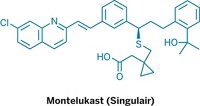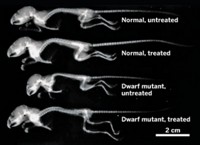Advertisement
Grab your lab coat. Let's get started
Welcome!
Welcome!
Create an account below to get 6 C&EN articles per month, receive newsletters and more - all free.
It seems this is your first time logging in online. Please enter the following information to continue.
As an ACS member you automatically get access to this site. All we need is few more details to create your reading experience.
Not you? Sign in with a different account.
Not you? Sign in with a different account.
ERROR 1
ERROR 1
ERROR 2
ERROR 2
ERROR 2
ERROR 2
ERROR 2
Password and Confirm password must match.
If you have an ACS member number, please enter it here so we can link this account to your membership. (optional)
ERROR 2
ACS values your privacy. By submitting your information, you are gaining access to C&EN and subscribing to our weekly newsletter. We use the information you provide to make your reading experience better, and we will never sell your data to third party members.
Biological Chemistry
How pregnancy eases multiple sclerosis
February 26, 2007
| A version of this story appeared in
Volume 85, Issue 9
Women with multiple sclerosis tend to experience a temporary remission of the disease during pregnancy. Prolactin, a lactation-inducing hormone whose concentration increases during pregnancy, might be responsible for this effect, according to neurobiologist Samuel Weiss and colleagues at the University of Calgary (J. Neurosci. 2007, 27, 1812). Multiple sclerosis gradually destroys the myelin sheath that insulates and protects nerve fibers and enables them to conduct electrical signals effectively. As the disease progresses and myelin damage worsens, patients lose strength and dexterity, find walking increasingly difficult, and develop sensory problems. The Calgary researchers studied mice to determine the effect of prolactin on myelin. On the basis of their results, they propose that prolactin increases the number of myelin-forming cells and stimulates repair of damaged myelin in pregnant mice. The hormone has the same effects when given to virgin mice with myelin damage. If future animal trials bolster these results, Weiss says, prolactin could be tested as a treatment for humans.






Join the conversation
Contact the reporter
Submit a Letter to the Editor for publication
Engage with us on Twitter